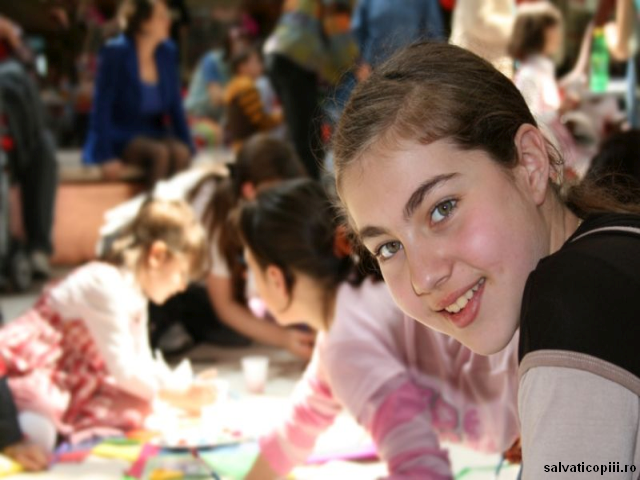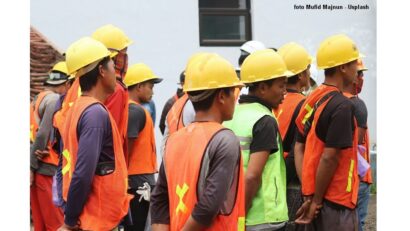Parents working abroad, children left at home
For years now Romania has been faced with a new phenomenon: parents going to work abroad and leaving their children in the care of other people.

România Internațional, 05.07.2017, 12:01
Its been quite a few years now since Romania has been faced with a new social phenomenon, with a major impact on children: parents migrating to countries with a stronger economy. For a better standard of living, lots of parents leave their native countries, entrusting their children to their relatives. Better wages may cover some needs and wishes, yet emotionally, living apart from one or even both parents is very likely to leave an immense void in the souls of the little ones. They experience a true drama, since nothing and nobody can ever replace a missing parent. Children feel abandoned and have to face emotional, social and educational difficulties. According to psychologists, missing ones parents leads to depression, alienation, low self-esteem and a sense of guilt.
Furthermore, children whose parents work abroad show a low motivation for school, for life in general. Some of them even have suicidal tendencies, as no one understands their plight. Reality by far exceeds the figures the authorities made public. Were speaking about 94, 662 children whom the national Child Protection and Adoption Authority presented as the most-recently reported figures, of which 20,560 have both parents working abroad and 12,837 having just one single supporting parent abroad, therefore children who are left in the care of a relative. In another move, surveys also estimated a number of 350.000 children in such a situation, accounting for 10 per cent of Romanias children.
Petruta Soare looks after a nine-year old niece. Her parents are in England and come home twice a year. The child is happy because she receives lots of gifts.
“For the time being, she does not miss her parents as she speaks with them every night. We get a lot of help from the Save the Children Organization. The children are placed in groups, they do their homework and perform various activities together and go on lots of trips. The child is satisfied as all her whims are fulfilled, parents buy her whatever she wants from abroad. She, in turn, makes her parents happy with her achievements in school. I am satisfied too, because shes doing fine in school and let me say that once again, she very much likes the activities ran by the Save the Children Organization, she simply couldnt have done this well without Save the Children.”
Elena left for Spain 10 years ago. She left two primary school boys with her relatives. Although she spent 2-3 months a year with them, the boys were unable to adapt and suffered a lot.
“Actually, it was rather difficult to leave two small children behind. Ten years later I realized I hadnt made a good choice, children grew up without me and I wasted the most beautiful years of our lives. Although I returned home every year to spend 3 months together with them, it was not enough to raise and educate them properly.”
The extent of this phenomenon, of children left home by parents who work abroad has led to the development at national level of a network of specialized services for these children. The “Save the Children” Organization has created such services, for both children and parents, on the one hand, and for the persons who actually have these children in their care.
Anca Stamin, a program coordinator with the “Save the Children” Organization told us:
“Back in 2010, Save the Children initiated services of support for the children whose parents left the country to work abroad, as well as for the persons who actually take care of these children. For instance, the organization started such programs as School after school. There are 17 such local programs in which children come after school, do their homework, take part in various leisure activities together with other children, are helped to communicate with their parents abroad through technical means, using the internet. They also benefit from psychological counseling, which helps them overcome this difficult situation. At the same time, those who actually take care of the children also benefit from psychological counseling, to help them better understand the childrens needs during this period, to better relate to them and interact with them. If the person who takes care of the children is a relative of theirs, he or she benefits from counseling, also as regards the procedure of delegating the parent authority, for a specific period of time, when one or both parents are working abroad”.
In 2015, the “Save the Children” Organization launched the first helpline and online counseling service for the children affected by economic migration. Anca Stamin again:
“It is a free of charge service, a helpline they can use from Monday to Friday to get information and legal, administrative, psychological and social counseling. Also, there is a phone number available for the parents who work abroad. We also have an online platform copiisinguriacasa.ro which has a section of interesting news and articles on this issue, as well as a section where people can leave their questions, which will be answered in due time by experts from the Save the children organization.”
At European level, there are 1,500,000 children affected by the absence of their parents, who are working abroad, and therefore the European institutions make sustained efforts to find solutions. MEP Victor Negrescu wants to initiate, with European funds, a national program which will be submitted to the Romanian Parliament for debate. Under this program, Romanians in the diaspora will be helped to return home and get reintegrated on the labour market in Romania. Mechanisms will be created to help get faster diploma equivalence, qualification certificates and other documents attesting the acquired professional experience, as well as a smoother integration of the children who lived in the diaspora in the education system in Romania.






























